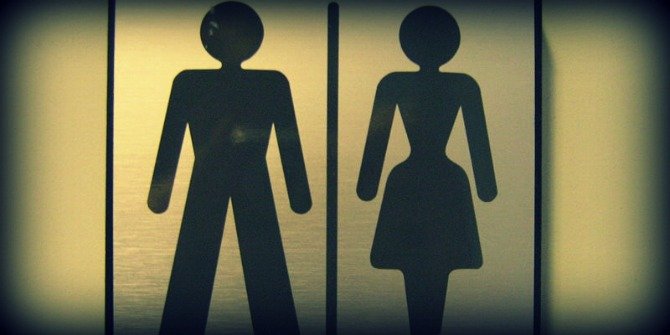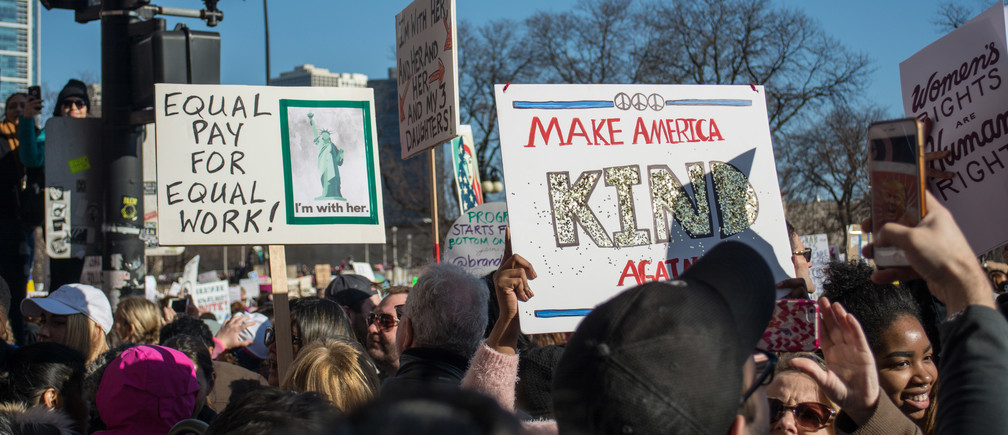
In the beginning of last August, a memorandum was released which highlighted the following:
“Women, on average, have more: Openness directed towards feelings and aesthetics rather than ideas; Extraversion expressed as gregariousness rather than assertiveness. Also, higher agreeableness; This leads to women generally having a harder time negotiating salary, asking for raises, speaking up, and leading, and at last but not the least, Neuroticism (higher anxiety, lower stress tolerance).”
Engineer James Damore, who wrote the report, is a Harvard university graduate, who has worked at Google for four years. His words, in the now-doomed memorandum cost him his job and a public condemn. He wasn’t lying and he didn’t have mean intentions, but they just let him go, following his male-based-cultural background and fears about his own job field being at risk by others.
A bit earlier this year, in July, another astonishing revelation was discovered. The British Broadcasting Corporation (BBC), the UK national and public broadcasting company revealed the salaries of its top stars last year, featuring the £2.2m – £2.25m Chris Evans earned yearly at the top-three of the list, following by the £1.75m – £1.8m, Gary Lineker, and the £850,0000 – £899,999, Graham Norton.
In this case, if we are to find a woman we need to look at the seven position of the rank, where Claudia Winkleman, earning roughly £450,000 – £499,999, shows up. The gap difference between the first of the list and star-presenter Claudia Winkleman is more than 4 times. They both do the same job, but again, the wage difference is appalling.
Both cases come from worldwide companies who describe themselves as modern, promoting equality and highly concerned with moral and ethical issues. Gender discrimination is a term that they fight off but it is still a problem, indoors.
Unconscious bias ?
Google’s engineer who wrote the memorandum structured his point based on scientific data, what it is called bias. Men and women are different biologically so the goal is not to do the same jobs, it is the equality in terms of personal capabilities and thus payslip.
Going even further, the gap between men and women hasn’t decreasedi n the last years but rather the other way around. A recent report from the World Economic Forum said that it is estimated gender parity globally may now be over 170 years away. Previously they estimated an 80-year time. Unfortunately, it keeps slowing down. The Forum’s Annual Gender Gap Report shows slow progress and minimal change in many countries worldwide.
The bias we are talking about has a lot of to do with the increasing gap in richest countries. The report, written by Laura Liswood, describes it as an unconscious bias.
“In general, there is a lack of awareness about who others are and what their capabilities and inherent qualities may be. In corporations, this often manifests as a culture that is unfriendly or unhelpful to women.”

It is all about holding the power
So despite all the “efforts” governments and international institutions are making to tackle discrimination, this unconscious bias is still there and will determine women’s role in a company.
Basically, this mean that statistically, women have to prove that they are able to do a specific task, which is not women-like. They tend as well to be excluded from informal mentoring or “bro” bonding which prevents them to have better job opportunities. Men, in general are not aware of these biases:
“He would not have experienced it at the same level or intensity as his female colleagues, nor felt its cumulative impact. He is unaware of the subtle advantages and perceived abilities “naturally” attributed to him. He may not truly grasp that for many women, their lack of success can be explained in part by the less-than-level playing field they work in. If it is made truly level, he will lose that subtle advantage he doesn’t even see.”
The writer continues stating how white men don’t have to face such adversities, and she statesthat the presence of capable women threatens the norms he has become used to.
It is then, the loss of power what really is behind this men behaviour. They felt threatened about women and the changes in their life-style.
The article mentioned a really good example about this. “Geena Davis, at her eponymous media institute, has found that when a room’s population is 20% women, men see 50%. When it is 30%, men feel it as 60%. The American Council on Education did a study asking teachers to call on boys and girls as best they could 50/50. After the experiment, the boys were asked how it felt. Their common response was: “The girls were getting all the attention.” The boys (and men) feel a loss when equality is achieved. They have normalised overbalance.”
This explains why the gap isn’t reducing but actually getting wider. A more equal world would signify less power for men, and therefore a complete disruption of how things are done, probably for good as this world really needs a boost.

Hernaldo Turrillo is a writer and author specialised in innovation, AI, DLT, SMEs, trading, investing and new trends in technology and business. He has been working for ztudium group since 2017. He is the editor of openbusinesscouncil.org, tradersdna.com, hedgethink.com, and writes regularly for intelligenthq.com, socialmediacouncil.eu. Hernaldo was born in Spain and finally settled in London, United Kingdom, after a few years of personal growth. Hernaldo finished his Journalism bachelor degree in the University of Seville, Spain, and began working as reporter in the newspaper, Europa Sur, writing about Politics and Society. He also worked as community manager and marketing advisor in Los Barrios, Spain. Innovation, technology, politics and economy are his main interests, with special focus on new trends and ethical projects. He enjoys finding himself getting lost in words, explaining what he understands from the world and helping others. Besides a journalist, he is also a thinker and proactive in digital transformation strategies. Knowledge and ideas have no limits.










